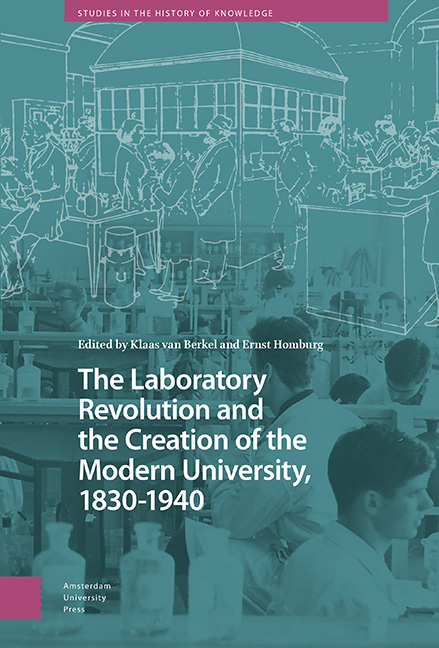Preface
Published online by Cambridge University Press: 29 November 2023
Summary
In this volume we have brought together more than a dozen new studies about the rapid, even revolutionary, development of the laboratory in the nineteenth and early twentieth centuries, especially in the context of the expanding universities. The importance of the research laboratory for the development of science in the second half of the nineteenth century is uncontested, as is the revival of the universities as centres of innovative science and scholarship in the same period. The connections between these two revolutionary developments are seldom studied in detail though. This is partly due to a current lack of interest in laboratory studies as well as in institutional history, but a main reason is also that histories of universities are commonly written by authors with a background in the humanities. This collection of essays tries to bridge the gap and bring representatives from the sciences and the humanities together in a concerted effort to integrate laboratory studies and the history of universities. We have cast a wide net ranging from detailed studies of particular universities and laboratories to general accounts of the laboratory ethos emerging in the nineteenth century, as well as of the rise of the laboratory as a publishing house. Of course, the treatment of this theme is not exhaustive, and we therefore hope that this volume will stimulate others to continue the study of the co-creation of the modern research laboratory and the modern research university.
- Type
- Chapter
- Information
- Publisher: Amsterdam University PressPrint publication year: 2023

